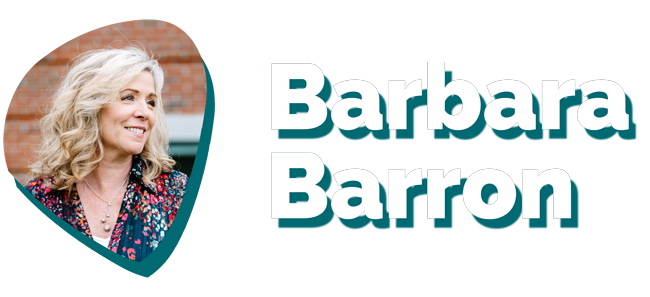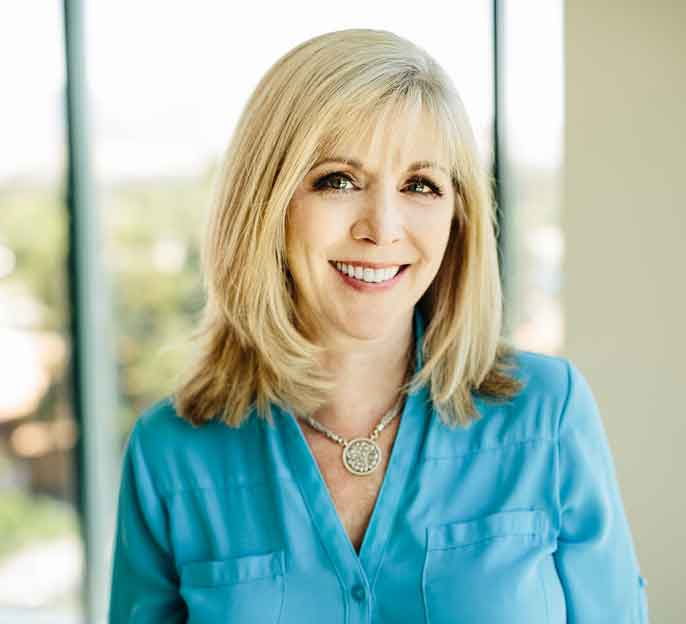by Barbara Barron | Posted April 6th, 2020
If ever there was a topic that seems nearly too hot to handle, it’s the notion of raising money right now. Is it unseemly? Inappropriate? Insensitive? Too soon?
Certainly the prevailing feeling (last week, anyway!) is that it is too early for schools to do anything other than batten down the hatches, reschedule or cancel events, and maybe, maybe, be in touch with members of your community.
I’m not suggesting there is any lack of communication. Quite the opposite. If anything, communication in this moment might be at an all time high! If you doubt me, ask a teacher. I have two in my family who are snowed under with email, texts, and calls from parents and colleagues. They are spending untold hours in virtual meetings.

As for me, I participated in no less than a dozen zoom meetings last week. One had 100 participants — all advancement and development professionals from schools around the San Francisco Bay area. 100. The need to connect, share, and learn how to do our jobs in a new kind of world is absolutely imperative right now.
But I was surprised, particularly in that forum, how little conversation there was about fundraising. Everyone seems to be waiting for a signal. What signal, I don’t know. In uncharted times, we can’t expect to apply old methods. We must be guided by our best principals, our inner conviction. Our values.
I have a client school who embraced my suggestion of a community care campaign (see article). But what we quickly learned was that their Board was initially hesitant, even nervous, about calling this a “campaign”. Further, they weren’t really loving that the development office was coordinating the effort. What they feared was that their families would think it was fundraising. And they’d be offended.
Which brings me to the question that headlines this article. How Can We Think About Raising Money in a Time Like This?
To which I reply, “How Can We Not?”
Do me a favor. Close your eyes and think about a business in your community that you deeply value. They are closed now due to social distancing. How might you react if they reached out to you, a valued member of their community, asking for your help in this desperate and uncharted moment? Would you feel angry? I doubt it — after all, you want them to still be there when things return to normal, right? I believe you would understand that they, like everyone else in these strange and frightening times, are simply trying to survive.
Now ask yourself why that should be different for your school – arguably the heart and the soul of your community.
This aversion to talking about raising money reveals the false and negative perception that development and advancement offices exist only to ask for money. You and I know that what development and advancement departments and the professionals in them do is so much more than that.
Have you subscribed to the newsletter yet? It only takes a minute.
We build community. We secure resources (monetary and otherwise) so that our schools and the talented teachers within them can deliver the most fundamental and vital of our gifts: educating children. In a moment like this, I am reminded just how much work we still need to do to create true “cultures of philanthropy” in our organizations. (If it’s helpful, you can review the primer I wrote back in 2018.).
Okay. So now that we’ve come to terms with the feeling that securing financial assistance from our community isn’t wrong, but actually the right thing to do at this moment, let’s imagine what we could consider raising money for.
After all, we’re not suddenly raising money for a new swimming pool, right? I’m not suggesting that we conduct business as usual, friends! We must engage in the practice of listening to our community, first and foremost, and then react accordingly. The money must go where it is most needed.
So what is needed? Far and away, the ideas I’m hearing across my client schools could all be listed under an umbrella called “Community Care”. There are lots of variations here, but you can guess as to what kind of work would be included. It might be funds for families already on financial aid but who now need more help. Or families who didn’t need financial aid until now. It could be raising money for teachers with partners now out of work so they are now down to one income. Maybe it’s a fund for the hourly staff at our schools, many of whom have been laid off. Perhaps it’s an expanded discretionary fund for our Head, so our leader can respond compassionately and confidentially to situations that only they know about.
Don’t all of those ideas sound reasonable to you? Don’t they sound downright necessary?
Some schools have already taken action. The Board of Trustees at one of my client schools has already established a fund for tuition assistance. Another has shifted its future fund-a-need to be financial aid for families.
As a side note: I am seeing non-school, not-for-profits be far more assertive about raising money now. Why do you suppose that is? Perhaps we’re in a giving mood, all around. As we should be. We’re all hungry to feel like we’re helping in a wartime effort. But, I digress.
If reading this article is making you nervous, I understand. If, at the end of this, you still believe that this moment calls for patience and making no asks of our community, I have sympathy.
But I want to put this bug in your ear. While this pandemic and the associated economic disaster is without true precedent, extraordinary moments of all kinds bring out the best in good advancement professionals. It’s like what we are called for. We need to lead with compassion and sensitivity, yes. But also, we need to lead with confidence. The organization you serve is worthy of support. You must believe that to your core and step forward from that place. Because here’s what I’m sure of: the people who care deeply for our organizations, who put us at the top of their philanthropic priority list — they want to help right now. They want our schools to survive this moment. Some, you may be inspired to learn, want our schools to thrive in this precarious moment.
Have you subscribed to the newsletter yet? It only takes a minute.
In closing, here is some guiding advice that I hope you find helpful as you do begin to raise money again:
- Get clear about what this effort is for. Balance clarity with flexibility.
- Be prepared for scrutiny. Take the time to sketch out your plan. Be sure your numbers back it up.
- Think of it as a mini case statement. Answer this: what will be supported and how? What will be prevented, improved, secured, or protected?
- Put a human face to it. Tie it to your mission.
- Keep this effort separate so you don’t cannibalize this or next year’s Annual Fund. Your operating budget’s health demands it.
- Ask key donors first. Keep it focused. Be sure they understand that anything they give to this special effort needs to be above and beyond their annual support. We will still ask them for their annual gifts. Forget about participation percentages right now.
- And last but not least, take care of yourself. As I said before, this situation requires a type of community-oriented confidence and leadership that you are uniquely positioned to provide. But you can’t do that if you aren’t taking care of your mind and body.
No one knows how long this will last. So prepare yourself for the long haul. Don’t exhaust yourself so totally that you are susceptible to fatigue – or worse.
We need you. Remember that.
As always, I’d love to hear your thoughts on the matter. My inbox is open. Stay well.
My name is Barbara Barron, and I’m writing this blog to share advice on a profession that I adore.
I’ve been working in the field of Independent School Advancement for nearly 20 years. In that time, I’ve had the pleasure of creating and implementing successful Strategic Fundraising Plans for so many incredible schools. I’ve had the privilege of seeing real growth at The Carey School, Marin Primary & Middle School, Woodside Priory, Crystal Springs, Presidio Knolls and others. (Maybe we’ve met!)
Nothing makes me happier than seeing a struggling school start to thrive. My hope is that you’re here to make a positive change as well. I hope my advice can be a part of that change.
Shoot me an e-mail if you want to swap tips, or share your voice here.
Let’s do this, together.



